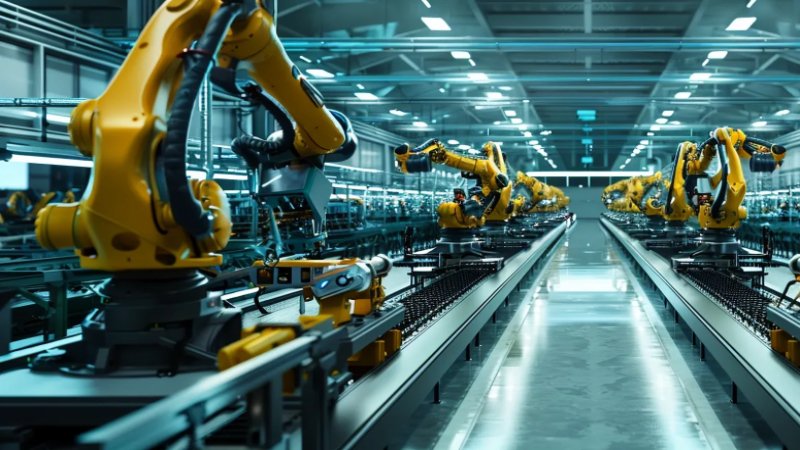Artificial intelligence (AI) has become a critical element in driving the optimization of business operations across numerous industries. As companies strive to improve efficiency, reduce costs, and provide better customer experiences, AI connectivity emerges as a transformative solution.
In this article, we discuss the role of AI-powered connectivity in streamlining business operations and its implications for the future of the corporate landscape.
Understanding AI Connectivity and Its Impact on Business Operations
AI connectivity is the glue that binds different AI components and data architectures within an organization. AI connectivity enables various AI systems, such as BA Insight, to communicate, making data readily available for actionable insights. Data-driven strategies rely on this connected approach, which enables businesses to fully leverage their AI investments.
One can compare AI connectivity to a neural network, where data moves smoothly, similar to how a human brain works, but much faster and on a larger scale. This unprecedented level of interconnectivity enables businesses to process large volumes of data in real time, ensuring that operational decisions are informed by the latest information.
Connectivity significantly impacts business operations, fostering enhanced productivity, agility, and innovation. With a well-connected AI ecosystem, businesses can automate complex workflows, predict market changes, and personalize customer engagements. As a result, businesses gain a competitive edge in the market by optimizing their operations for efficiency and effectiveness.
AI in Automation: Redefining Efficiency and Accuracy
Automation has long been the pillar of operational efficiency. With the advent of AI, automation has transcended its traditional boundaries, redefining what it means to work smart. AI-driven automation can handle a spectrum of tasks ranging from mundane data entry to complex analytics, all with a level of precision and speed that is unattainable by human standards.
AI systems can learn from previous actions and outcomes, adapting their algorithms to optimize performance over time. This ability to self-improve means that the longer AI is in operation, the more efficient it becomes. It’s this quality that makes AI-powered automation an invaluable asset for forward-thinking businesses looking to sustain growth while managing operational expenses.
In sectors such as manufacturing and logistics, AI enables machines to predict failures and schedule maintenance autonomously, preventing downtime and increasing the lifespan of equipment. This proactive approach ensures continuous operations and leads to considerable savings on repair and replacement costs.
Improving Decision-Making With AI-Powered Data Analysis
Data is the currency of the modern business world, but its value lies in the ability to analyze it efficiently and extract valuable insights. AI-powered data analysis transforms raw data into actionable intelligence, empowering decision-makers at all levels of the organization.
Through advanced algorithms and machine learning techniques, AI can identify patterns and trends that would be impossible for humans to identify within a reasonable amount of time. These insights enable businesses to anticipate market shifts, understand customer behavior, and make rapid strategic adjustments.
Perhaps most importantly, AI-powered data analysis is scalable. As businesses grow and the volume of data increases, AI systems can scale accordingly without a proportional increase in time or resources needed for analysis. This type of business scalability guarantees that companies can maintain a data-driven approach, regardless of their size or the scale of their operations.
AI and Customer Experience: Personalizing Interactions at Scale
The modern consumer expects a personalized experience, and businesses must adapt to meet these expectations. AI-powered connectivity allows companies to personalize at scale, tailoring interactions for individual customers without compromising efficiency. AI can analyze customer data, predict preferences, and recommend products or services that align with individuals’ tastes, enhancing customer loyalty and satisfaction.
For instance, in the realm of e-commerce, AI-powered chatbots provide instant customer service, resolving queries and facilitating transactions around the clock. These bots improve customer experience and free up human customer service representatives to handle more complex issues that require a personal touch. And for many users, talking to a virtual AI agent has become a seamless part of the online shopping experience, making support feel faster and more accessible.
AI also plays a crucial role in sentiment analysis, sifting through social media, reviews, and customer feedback to gauge public perception of a brand. This real-time insight into customer sentiment allows businesses to react promptly to both positive and negative feedback, managing their brand’s reputation proactively.
Overall, the integration of AI-powered connectivity within business operations is revolutionizing the way companies function, delivering unmatched efficiency, valuable insights, and enhanced customer engagement. Overall, those willing to embrace connectivity will find themselves well-equipped to lead in an increasingly competitive and data-driven business environment.
